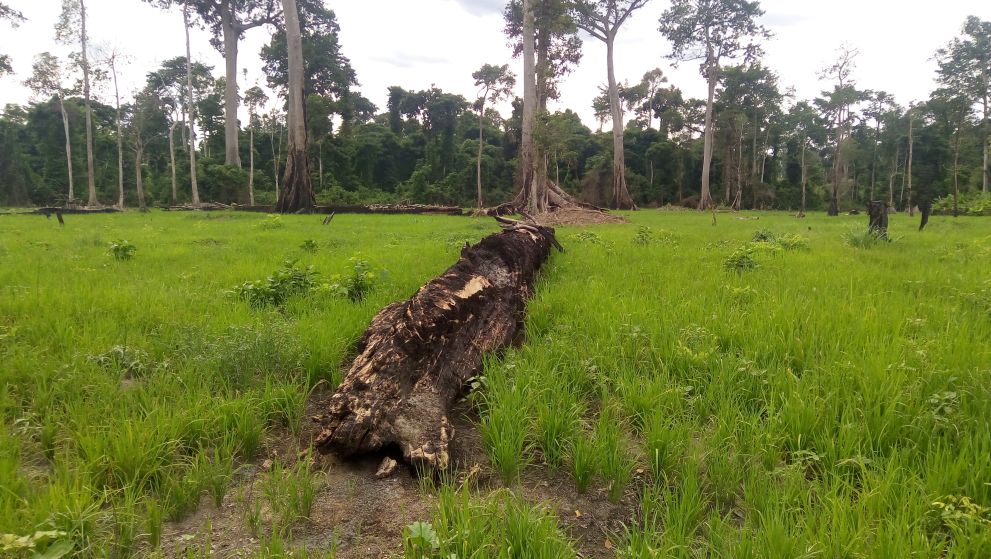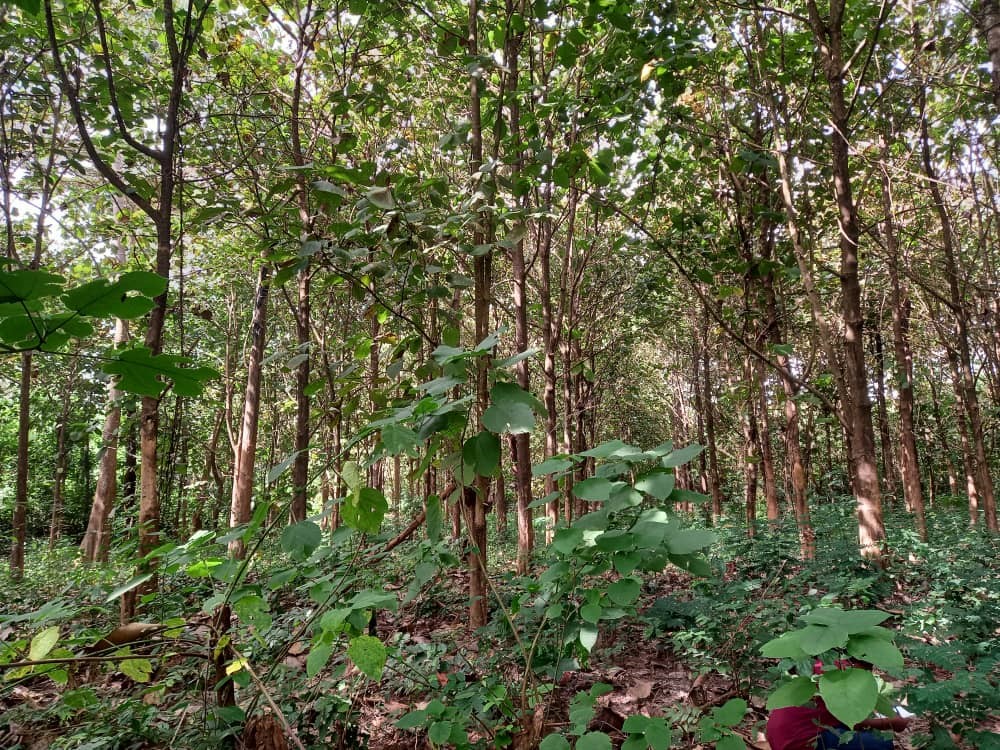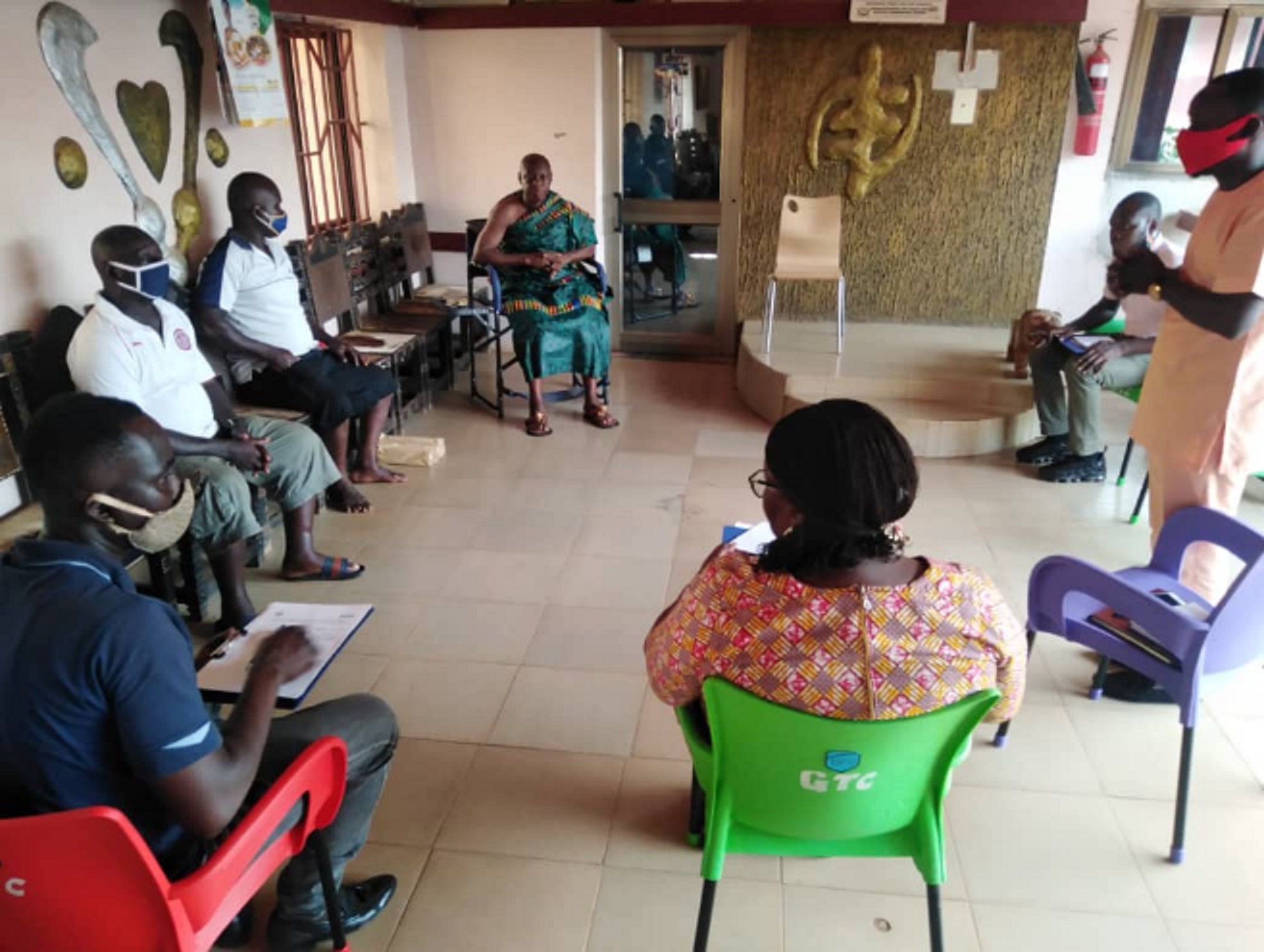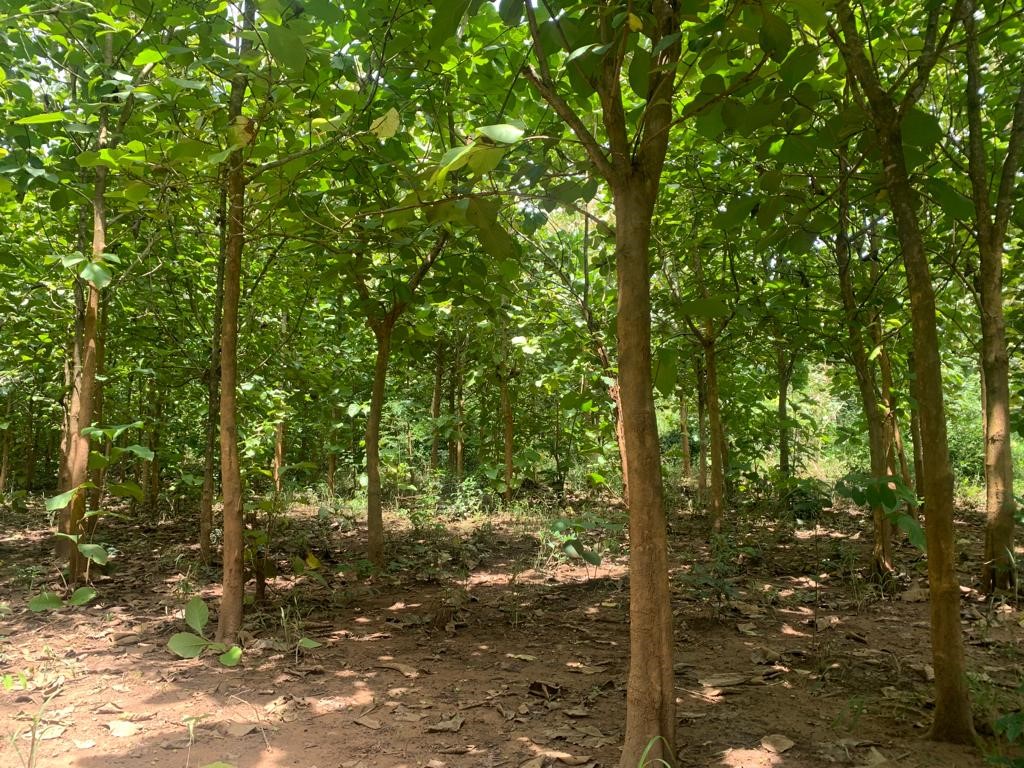Projects Undertaken
From 2007-2008, RESCONI through its environmental awareness creation and tree planting promotion programmes supported tree farmers and Forest Plantation Groups to establish private plantations covering over 500 hectares within Nkawie Off-Reserve Areas in the Ashanti Region of Ghana. RESCONI has been engaged in several programmes related to the environment such as the (Protected Area Development Project) PADP II which was funded by the European Commission in 2009. This project aimed at the conservation of the biodiversity heritage in the Protected Areas of Ankasa and Bia, which host some of the last significant tropical rainforest fragments of the Upper Guinea Forest Ecosystem, running from Guinea to Togo.
From 2014-2015, RESCONI was involved in the Development of Ecotourism Strategy for the Western Wildlife Corridor and the Proposed Associated Collaborative Wildlife Management Areas with funding support from the Ministry of Environment Science Technology and Innovation (MESTI). This project was an analytical study on ecotourism potential of the Western Wildlife Corridor, broadening to the Gbele Resource Reserve to the north-west and the Mole National Park to the south and recommended options for large scale nature based business. The project was funded from the Global Environmental Facility (GEF) under the Ghana Sustainable Land and Water Management Project (SLWMP) to finance specific activities for sustainable land and water-shed management.
Projects Continued
In 2015, the RESCONI, further undertook the project titled “Promoting Integrated Watershed Protection within the Afram Headwaters Basin Area through Community Involvement in the Offinso Forest District”. This project aimed at enhancing the conservation strategies for Afram Headwaters Watershed and Catchment Management for long-term water resources for agriculture, industry and human consumption on a sustainable basis. The project was designed through a participatory process involving six (6) communities fringing the Afram Headwaters Forest Reserve within the Offinso Forest District in the Ashanti Region. It was successfully completed within a period of eighteen (18) months.
In 2021, the RESCONI undertook the development of the Guidelines for the Disbursement of Funds to Local Management Committees (LMCs) for the Management of Mining Community Development Schemes. This was under the leadership of the Executive Director of RESCONI with funding from the Minerals Development Fund (MDF) Board. This Guideline aims at ensuring transparency and compliance in respect of the disbursement of funds to mining communities by strict compliance with the stipulated provisions and all applicable statutes. This was subsequently followed by the training of all the Executives of the nineteen (19) LMCs in the country.

Focus Area
i. REDD+ and Climate Change Issues.
ii. Research and studies on natural resource policy, revenue management and redistribution from the natural resources and extractives sector.
iii. Landscape restoration and plantation development.
iv. Assisting forest and mining communities in biodiversity conservation initiatives.
v. Capacity development on environmentally related issues.
vi. Identification and Management of Community Resource Management Areas.
vii. Social Impacts and Environmental Governance.
viii. Advocacy for supporting natural resources and environmental governance.
Our Philosophy and Work Ethics
RESCONI’s principles and philosophy are based on four main organisational values, which are:
i. Excellent Performance: We seek to provide excellent performance and outstanding outcomes that provide long-lasting solutions for our stakeholders.
ii. Teamwork and Trust: We employ teamwork and trust to achieve success and deliver professional solutions to our communities and partners.
iii.Transparency and Accountability: Transparency and accountability are our hallmarks in achieving mutual success.
iv. Equity: We are committed to building a fair and just society
Our Approach to Addressing Inequalities
RESCONI's works contribute to addressing inequalities in the following ways:
(i) Support efforts to improve the livelihoods and economic activities to reduce income inequalities of mining impacted and forest fringe communities.
(ii) Supports the empowerment, social and economic inclusion of all members of our program communities irrespective of race, gender, ethnicity or economic status;
(iii) Promoting equal opportunities including through eliminating discrimination by means of appropriate policies, regulations and actions. This means focusing on policies that promote greater equality, including fiscal policies, regulation and to promote the orderly, safe, and responsible extraction and mobility of rural people, and the long-standing issue of fair and adequate compensation, representation and voice in the extractive governance system.
Geographic Focus and Populations/Communities
RESCONI is concerned with individuals, communities and organizations by working together with them to solve environmental problems that have lasting impacts. RESCONI is also concerned with communities in need of environmental awareness creation, conservation and protection of threatened ecosystems and developing the potential of the local communities to minimize land and natural resource use, advocating to establish the rights of the rural poor and the marginalized in policy and decision making and climate change mitigation and adaptation.
RESCONI works across Ashanti, Western, Bono, Bono East and Ahafo Regions for which it has very useful working, institutional and community experiences. We are competently equipped to identify all key stakeholders that play critical roles pertaining to our work. Generally, this involves relevant regulatory agencies and private sector, the local government, the Traditional Authorities and the local population with their distinct and varied interest groups.



